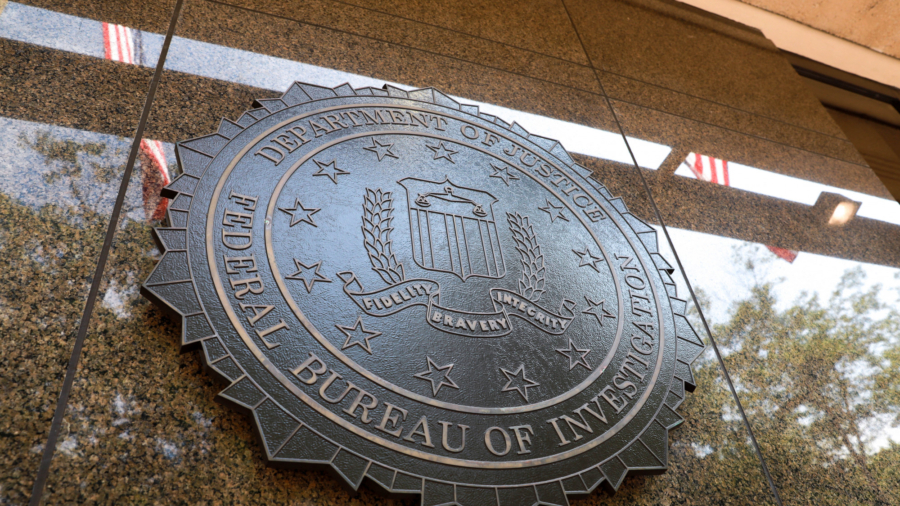Inspector General Michael Horowitz revealed in his testimony on the FBI’s Russia probe regarding the 2016 election on Dec. 11 that intelligence agency’s claim that they had supposedly given the Trump campaign a “defensive briefing” in August 2016 on potential Russian political interference was false.
Instead, Horowitz confirmed, the FBI used the counterintelligence briefing “for the purpose of investigation” of the Trump campaign.
Sen. Lindsey Graham on FBI surveilling the Trump campaign: “Let’s put it this way, if you don’t have a legal foundation to surveil somebody and you keep doing it is that bad?”
IG Michael Horowitz: “Absolutely.”
Graham: ”Is that spying?”
Horowitz: “It’s illegal surveillance.” pic.twitter.com/cYLZ3JjMJ3
— Steven Cheung (@CaliforniaPanda) December 11, 2019
Amid growing concerns that the Trump campaign had not received a defensive briefing from the FBI on concerns that campaign associates had connections with Russia, the chairman of the Committee on the Judiciary Charles E. Grassley (R-Iowa) on Sept. 20, 2017, sent a letter to the director of the FBI, Christopher Wray, asking for clarification as to whether a briefing had occurred.
“I write to inquire about whether the FBI ever provided the Trump campaign with a defensive briefing or other warning regarding attempts to infiltrate the campaign by people connected with, or compromised by, Russian intelligence,” the letter from Grassley read (pdf).
Wray wrote back (pdf) on Oct. 26, 2017, to say that the FBI had provided a “counterintelligence defensive briefing” to the Trump campaign, in addition to briefings for then-candidate Hillary Clinton and the two vice presidential candidates.
“This defensive briefing was conducted by an experienced FBI counterintelligence agent and focused on the broad range of threats posed by foreign intelligence entities,” the director said.
He said that while there is no specific policy on their timing, such briefings are considered a very important counterintelligence tool for helping individuals “defend themselves and their organizations from foreign intelligence collection.”
However, Horowitz pointed out in his Dec. 11 testimony that the response the FBI gave Grassley was misleading, as despite a briefing having occurred, he was certain that the Trump campaign had not been briefed about the specifics of the intelligence in the FBI’s possession.
“They did not brief him, and we lay out on page 55” Horowitz said of the report by the watchdog of the justice department (pdf).
Horowitz was also asked by Chair of the Senate Judiciary Committee, Sen. Linsey Graham (R-S.C.), who the FBI was supposed to be protecting in its Russia investigation.
Horowitz said that based on the information received from a “friendly foreign government,” the FBI ideally should have been acting to protect “the election process, which would include the campaign, the candidate, and the American people.”
But instead, as Graham explained, the senior FBI agent gave members of the Trump campaign a “vanilla briefing” while filling out a 302 FBI form used to “report or summarize” interviews conducted as part of an “investigation.”
“It’s illegal surveillance. It’s not court authorized surveillance under FISA,” Horowitz said.
“We have very significant concerns about that and I would note that in Director Wray’s response, he underlined that that would not occur going forward.”
Graham said that following Horowitz’s report, the FISA system had to be reformed.
“Director Wray, you’ve got a problem. And the way we fix it is listen to Mr. Horowitz and get the director of the FBI in here to try to find out a way to make sure this never happens again to any politician in this country,” he said.
“It’s Trump today. It could be you or me tomorrow.
“Imagine, ladies and gentlemen: if they can do this to the candidate for the president of the United States, what could they do to you?
“We can’t write this off as being just about one man or one event. We’ve got to understand how off the rails the system got.
“I think Democrats and Republicans are willing to make sure this never happens again, that if you open up a counterintelligence investigation on a presidential campaign in the future, there needs to be more checks and balances,” he added.

